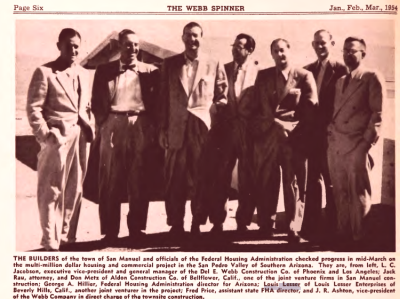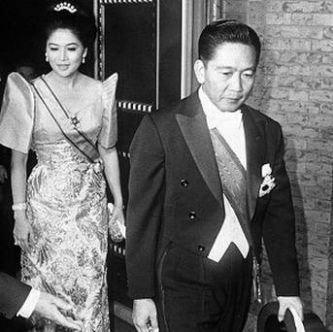Understand American business owner - you do not control your hiring, unelected bureaucrats control it and, thus, the country
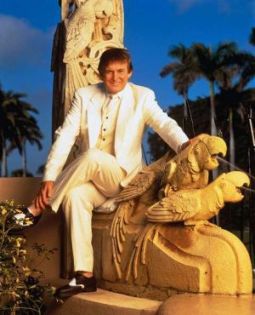 Is he really doing it without dirty money?
Is he really doing it without dirty money?
When asked to describe what they like most about Donald Trump, supporters usually say “He’s been doing it all without dirty money.” They mean his campaign is self-funded, and takes no money from lobbyists, special interests, and Republican Party kingmakers.
But what if Trump’s own money is dirty? Could a sizable chunk of Trump’s net worth come from selling real estate to drug lords, mobsters, and international financial criminals?
The answer is: There’s no way to tell. Secrecy hides the identity of the crooked, violent and corrupt who invest cash in U.S. real estate through shell companies registered in Delaware, managed by a bank in the Grand Caymans for a trust in Guernsey. And its all perfectly legal.
Even Swiss banks these days have to know who their customers are. Not American real estate developers. There’s no legal requirement whatsoever that U.S. real-estate developer Donald Trump know who his clients are. Probably, he couldn’t care less. Or even worse, he’d rather not know.
“The Great Circle of Life,” Trump-Style
 A closer look at Trump reveals names which recur with his—and with each other—in odd and unexpected places. It’s as if Trump belongs to the “Great Circle of Life” from a “Lion King” movie shot in an alternative Universe.
A closer look at Trump reveals names which recur with his—and with each other—in odd and unexpected places. It’s as if Trump belongs to the “Great Circle of Life” from a “Lion King” movie shot in an alternative Universe.
From Palm Beach, winter home to well-known and well-heeled scammers from around the world, here’s a thumbnail sketch of “The Great Circle of Life,” Trump-Style.
Donald Trump has repeatedly taken advantage of this huge loophole in American law, never more blatantly than when he made a cool $90 million dollar profit on a Palm Beach mansion he sold to a man who someone must have worked really hard to convince the American mainstream media to identify as a “Russian businessman,” or “Russian fertilizer oligarch.”
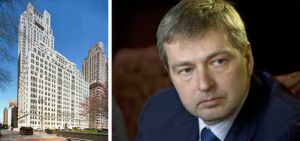 He wasn’t. Dmitry Rybolovlev is a Russian Mobster, who was indicted for rubbing out his chief business rival in what Russian news agency TASS called a “contract hit.”
He wasn’t. Dmitry Rybolovlev is a Russian Mobster, who was indicted for rubbing out his chief business rival in what Russian news agency TASS called a “contract hit.”
Yet the Donald was pocketing $90 million of dirty cash from the Russian Mob at the same time a minor politician in California was taking tons of heat for accepting—from that same Russian Mobster—a $400 pen.
For his part, Rybolovlev liked the U.S. media’s characterization of him as a Russian “businessman” so much that four years ago he splurged on the most expensive condominium ever sold in Manhattan ($88 million).
As for Trump, there’s no way of knowing if he’s used any dirty money from the Russian Mob to fund his campaign. In fact, there’s no way of knowing so much about Donald Trump’s business career that the best way to get a clearer picture of who he is may be to check out who he does business with.
How Donald Trump became Donald Trump
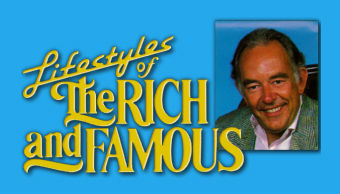 For anyone lucky enough to have never seen an episode of “Lifestyles of the Rich & Famous,” here’s a quick reminder of how Donald Trump became Donald Trump.
For anyone lucky enough to have never seen an episode of “Lifestyles of the Rich & Famous,” here’s a quick reminder of how Donald Trump became Donald Trump.
Long before becoming a Presidential candidate, Trump was a famous icon from an especially questionable time in America, the “go-go” ‘80’s,” when robber barons walked the earth unafraid, while on TV a British twit named Robin Leach rhapsodized about them between commercials.
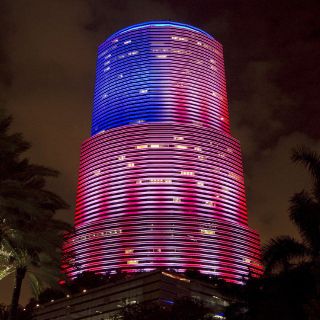 It was a time when things—at least law enforcement-wise—were clearly well out of hand. The enormous amount of cocaine money sloshing around the banking system in Miami made some banks there seem to bulge outwards over the sidewalk and drive-through window.
It was a time when things—at least law enforcement-wise—were clearly well out of hand. The enormous amount of cocaine money sloshing around the banking system in Miami made some banks there seem to bulge outwards over the sidewalk and drive-through window.
In the American economy in the 1980’s, drug money was as visible as an alligator in the Everglades sliding down the throat of a Burmese python.
Trump and Ivana were the first couple of the Greed Decade. Trump was Gatsby with weird hair. His Daisy was a former Czech Olympian skier. A blond girl from the South with a syrupy smile waited in the wings. Gold fixtures everywhere. Everything was “real class.”
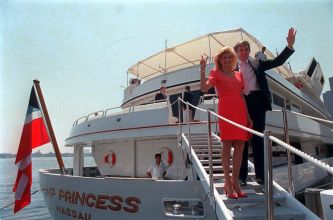 “In a decade of glitz, they were the glitziest; in a decade of greed, they were the greediest,” reported People magazine, laying it on a little thick. “The scrappy investor wheeling and dealing his way to a fortune… And an outsider charming and clawing her way into New York’s most refined social circles.”
“In a decade of glitz, they were the glitziest; in a decade of greed, they were the greediest,” reported People magazine, laying it on a little thick. “The scrappy investor wheeling and dealing his way to a fortune… And an outsider charming and clawing her way into New York’s most refined social circles.”
Being a big-time real estate developer was never more fun. Romantic three-day weekends in your many-splendored mansion by the sea in Palm Beach. Dancing in the disco in your designer art deco hotel in South Beach.
That was then, this is now. See any difference?
In “Stash Pad” in New York Magazine, Andrew Rice reported, “The New York real-estate market is now the premier destination for wealthy foreigners with rubles, yuan, and dollars to hide.”
Imagine what Florida must be like… 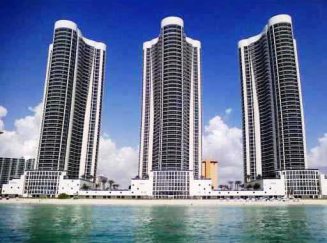 Today in Miami, rising above miles of strip malls, convenience stores, pawn shops, and gas stations, is a row of skyscrapers so baroque that they conjure up only one man: Donald Trump.
Today in Miami, rising above miles of strip malls, convenience stores, pawn shops, and gas stations, is a row of skyscrapers so baroque that they conjure up only one man: Donald Trump.
Three Trump Towers, and three other Trump-branded properties in Sunny Isles, including the Trump International Beach Resort, loom over beachfront Collins Avenue, where they are a favorite home away from home for Russian Mobsters.
Sunny Isles has numerous real estate agencies owned by Russians that cater heavily to Eastern European clients, among them Exclusively Baranoff Realty, which operates from an office in the lobby of the Trump International Beach Resort. Thanks to its heavy Russian presence, Sunny Isles has acquired the nickname “Little Moscow.”
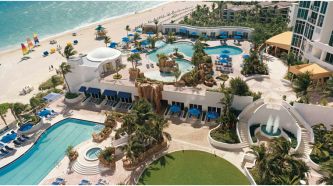 In a profile in The Nation magazine called “Miami: Where Luxury Real Estate Meets Dirty Money” Ken Silverstein writes:
In a profile in The Nation magazine called “Miami: Where Luxury Real Estate Meets Dirty Money” Ken Silverstein writes:
“One night I had dinner and felt like I’d been transported into a Russian version of Goodfellas. A Russian singer performed on a stage with disco lights while customers ordered skewered sturgeon, and clinked forks on glasses to announce toasts before downing shots of vodka. A man who looked 70 spoke in Russian to his wife, who appeared at least 40 years younger. At another table, a man about the same age was seated with a young woman in blue jean shorts, a halter top and cowboy boots.”
Trump welcome mat out for international grifters
 Just how easy does Donald Trump make it for foreign representatives of organized crime to buy real estate from him? Silverstein writes:
Just how easy does Donald Trump make it for foreign representatives of organized crime to buy real estate from him? Silverstein writes:
“She took me to see a unit on the thirty-eighth floor of Trump Palace, which looked out on the turquoise waters of the Atlantic and was on the market for $2.3 million. “Living in a Trump property is like living in a hotel,” she told me, as we stood on a balcony. The unit was attractively priced, she said cheerfully, and all the more so as the owner, a Russian looking to buy a bigger condo elsewhere in the area, had spent at least $350,000 on improvements.
Later that day, I obtained the property records for the condo. The legal owner is a company registered in Belize, an offshore haven where, according to a government website, there “is no requirement to file annual returns or public disclosure of directors, shareholders, charges, loans or agreements.”
In other words, the true owner of the Trump Palace unit is untraceable.
Even the New York Post, which could be excused for being sensitive to talk about lax immigration letting in the world’s richest undesirables, chimed in.” New York’s swankiest skyscrapers have become the new Swiss banks for the world’s richest undesirables.”
“Today, Switzerland has cleaned up its act and the “filthy” rich have turned to New York City, turning it into a secrecy haven to stash their cash through the use of shell companies.”
Donald Trump called him “The Legend.”
Instead of one of the many famous names in Trump’s “Great Circle,” let’s begin with someone who’s no longer well-known. Louis Lesser was once as big a name in real estate development as Donald Trump’s, but by the time he died he had become a forgotten man.
Lesser (third from right in pic) was once the biggest developer in the history of the western U.S., developing housing for military personnel during World War II, then grew wealthy developing, owning and leasing properties to the U.S. military during the Cold War, locking up numerous contracts under Kennedy and Johnson for developments for military industrial complex clients.
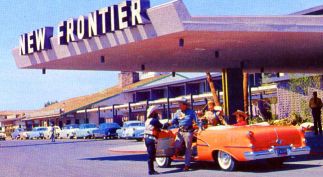 Louis Lesser was a partner with Syndicate legend Meyer Lansky and Kirk Kerkorian in buying up Las Vegas hotels and casinos. He had extensive ties with Howard Hughes. He developed, owned, and leased many properties to Hughes’ Aircraft, including a massive project in Newport Beach.
Louis Lesser was a partner with Syndicate legend Meyer Lansky and Kirk Kerkorian in buying up Las Vegas hotels and casinos. He had extensive ties with Howard Hughes. He developed, owned, and leased many properties to Hughes’ Aircraft, including a massive project in Newport Beach.
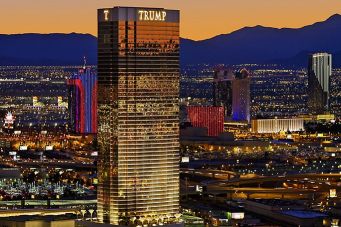 Lesser helped Hughes buy up hotels and casinos in Las Vegas. When Lesser sold his Frontier Hotel and Casino to Hughes, it was the beginning of Hughes’ take-over there. In an example of Trump’s synergistic Great Chain of Life, years later, Donald Trump erected the Trump Hotel Las Vegas on a portion of the property.
Lesser helped Hughes buy up hotels and casinos in Las Vegas. When Lesser sold his Frontier Hotel and Casino to Hughes, it was the beginning of Hughes’ take-over there. In an example of Trump’s synergistic Great Chain of Life, years later, Donald Trump erected the Trump Hotel Las Vegas on a portion of the property.
 Louis Lesser, when he resigned as chairman of Louis Lesser Enterprises in 1967, was replaced by an associate of Henry Salvatori, who the L.A. Times called a “GOP Kingmaker.”
Louis Lesser, when he resigned as chairman of Louis Lesser Enterprises in 1967, was replaced by an associate of Henry Salvatori, who the L.A. Times called a “GOP Kingmaker.”
In 1964, Salvatori chaired Barry Goldwater’s presidential campaign in California. He convinced Goldwater to allow Ronald Reagan to give a televised fundraising speech entitled “A Time for Choosing,” which launched Reagan’s political career. Salvatori became a prominent member of Ronald Reagan’s “kitchen cabinet.”
Trump’s “Great Circle” buddy Louis Lesser (cont.)
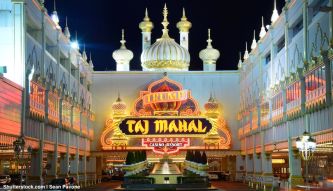 Louis Lesser sold his Taj Mahal Hotel and Casino in Atlantic City to Donald Trump.
Louis Lesser sold his Taj Mahal Hotel and Casino in Atlantic City to Donald Trump.
Later, when the casino went bankrupt, a court filing in the bankruptcy proceedings revealed Trump’s Taj Mahal Casino listed Fincen (The U.S. Financial Crimes Enforcement Network) as an unsecured creditor, meaning it hadn’t paid the record $10 million penalty (the largest the agency ever levied on a casino) for what FINCEN called “money laundering failures.”
What follows is an example of how Trump associates blend into each other, and manage to stay just a step or two in front of the law.
In the late 1980’s Louis Lesser’s son Craig became partners in real estate with Imelda Marcos, fronting for the real principals, Louis Lesser and Philippines dictator Ferdinand Marcos. On an outing with Imelda and a military contingent, Craig Lesser helped uncover part of the fabled cache of gold buried by the Japanese in the Philippines at the end of Word War II.
In Gold Warriors (2002), Sterling and Peggy Seagrave detail a “great fortune discovered by U.S. intelligence services in 1946 … $13-billion in war loot amassed by underworld godfather Kodama Yoshio who, as a rear admiral in the Imperial Navy working with Golden Lily in China and Southeast Asia, was in charge of plundering the Asian underworld and racketeers. He was also in charge of Japan’s wartime drug trade throughout Asia
Craig Lesser sent back a solid gold antique vase to his father, which took several men to lift, and which was displayed on the mantle at Louis Lesser’s mansion, once the largest private residence in Beverly Hills.
Until TV producer Aaron Spelling built “The Manor,” a home that rivals a mid-sized hotel in square footage, Louis Lesser lived in the largest house in Beverly Hills. In fact, his house at 1156 Shadow Hill Way was used extensively during production of Beverly Hills 90210.
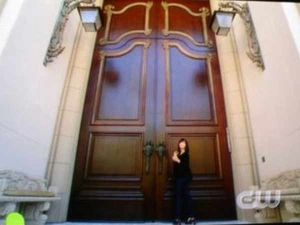 Its current occupant, Pearlasia Gamboa, is a Filipino-American business woman who’s been involved in massive fraud, and was the president of a “micro-nation” called the Dominion of Melchizedek, an atoll in the South Pacific which lies underwater at high tide, used as a front for fraudulent criminal activity.
Its current occupant, Pearlasia Gamboa, is a Filipino-American business woman who’s been involved in massive fraud, and was the president of a “micro-nation” called the Dominion of Melchizedek, an atoll in the South Pacific which lies underwater at high tide, used as a front for fraudulent criminal activity.
Bank of England officials raided the London premises of a company which offered get-rich-quick investment schemes backed by a phony bank ”registered” in Melchizedek. ”It appears to exist mainly so that money can be whisked through shell banks,”reported the Washington Post.
Is it oddly telling, or mere happenstance, or just another illustration of Trump’s “Great Circle of Life,” that Trump business associate Louis Lesser, who had much to do with providing entree into the world of casino gambling, owns a home (he’s dead, his son Craig is still associated with the property) that’s a nexus for international financial swindlers?
Time out for a little comic relief
 When Imelda Marcos went on trial in New York in 1990 for laundering tens of millions of dollars belonging to the people of the Philippines, her co-defendant was another close Trump associate, Adnan Khashoggi. (Both Marcos and Khashoggi were acquitted.)
When Imelda Marcos went on trial in New York in 1990 for laundering tens of millions of dollars belonging to the people of the Philippines, her co-defendant was another close Trump associate, Adnan Khashoggi. (Both Marcos and Khashoggi were acquitted.)
The first time I saw Donald Trump’s name linked with Adnan Khashoggi’s was in a wickedly funny article from the early 90’s in Spy Magazine called ”Who is America’s cheapest zillionaire?”
Spy magazine— cruel, brilliant, beautifully-written, and feared by all—incorporated a company called the National Refund Clearinghouse, gave it its own checking account, and zipped out refund checks to 58 “well-known, well-heeled Americans” for $1.11 apiece.
 Chortling, the magazine’s editors settled back to see who cashed them.
Chortling, the magazine’s editors settled back to see who cashed them.
26 frugal people—“The Bargain-Basement 26,” including Cher, Harry Helmsley, Michael Douglas, Shirley MacLaine, Kurt Vonnegut, and Donald Trump and Adnan Khashoggi, who partied together in swank Palm Beach Florida—cashed their $1.11 checks.
Each then receive a second “National Refund Clearinghouse” check, for 64 cents, half the amount of the first check as compensation said a cover letter, for ”a computer error.’ Trump, Khashoggi, and 11 other extraordinarily cheap people each cashed checks for 64 cents apiece.
“The Chintzy 13” then each received a final check for 13 cents.
Donald Trump & Adnan Khashoggi were the last men standing. Trump, who the magazine called a “short-fingered-vulgarian,” and Khashoggi, who personally endorsed his on the back, each cashed checks totaling one dime and three pennies.
Whether by accident, coincidence, or cosmic design, over the next two decades Trump and Khashoggi’s names will be inextricably linked.


